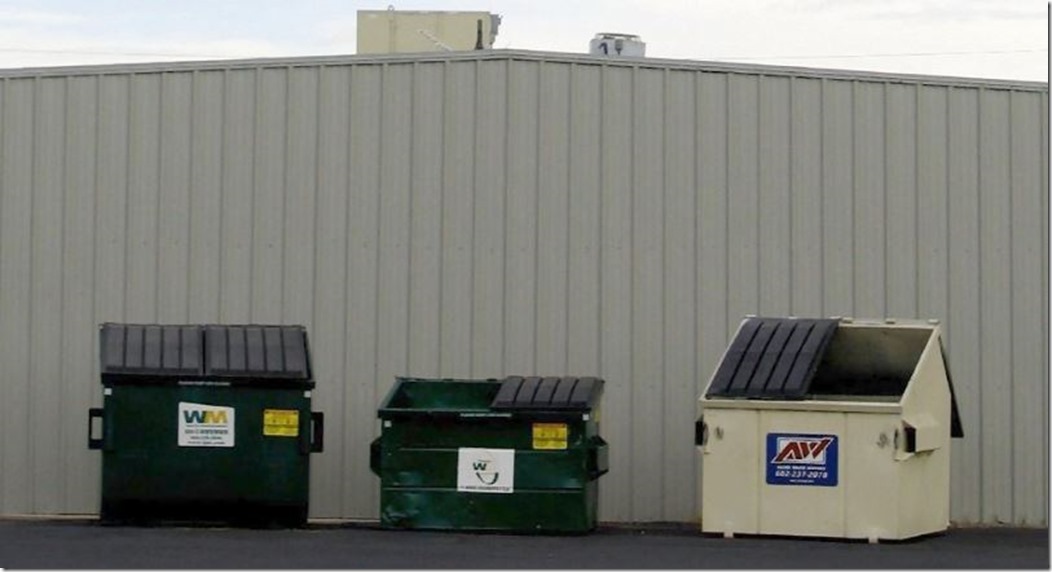Australia is one of the world’s strictest countries when it comes to recycling and waste disposal. Unfortunately, despite most of us adhering closely to laws concerning waste recycling, we are still in the midst of a full-blown recycling crisis.
In any case, we can all still do our part to help offset the effects of the ongoing issue. The key is to reduce the amount of waste we produce so that less needs to be processed. Given that commercial establishments are some of the biggest waste contributors, it makes sense to start there.
Here are some ways your office can be part of the solution:
1.) Consider renting rather than buying some equipment
Many workplaces only need to use certain types of equipment occasionally. Photocopiers and projectors, for instance, are not likely to see daily use in most small offices. Rather than storing these onsite, where they may deteriorate with disuse, it may be better to simply rent infrequently-used equipment as needed.
2.) Invest in long-lasting fixtures
On the other hand, you’ll want to invest in more durable versions of the types of fixtures and equipment you do use. For instance, it may make sense to spend a little more on chairs if they are more likely to last longer. This can significantly cut down on the fixtures and equipment that you would otherwise have to write off every year.
3.) Ask vendors to reduce packaging
If you purchase certain supplies in bulk, ask your vendor to provide you with these without the individual packaging. Also, try to see if they can ship the items in reusable containers that they could take back and refill.
4.) Reuse durable office supplies
Folders, binders, poster board, and other similar items that could be used more than once, saving them from an otherwise premature fate at the landfill. Envelopes could also be reused if adhesive labels are used for the addresses.
5.) Only print reports on demand
The paperless office might not yet be a reality, but there are now plenty of digital alternatives to paper for many applications. Email and app suites such as MS Office and Google Drive make the use of paper for reports and other documents redundant in most cases. Try to discourage the use of paper unless specifically asked for.
6.) Provide reusable plates and utensils
Disposable plates and utensils are by far the biggest source of rubbish at most offices that use them. Traditional utensils and china tend to be a far more ecologically sustainable choice. Just make sure you can provide facilities for washing them thoroughly.
7.) Rent skip bins to handle higher volumes of waste
In many cases, the local rubbish collection services may not be able to adequately handle the volume of waste produced by your workplace. To improve sanitation and to ensure recyclable materials are sent to the right facilities, it’s often best simply rent skip bins. Skip bin rental services typically quite flexible and can rent out different types of bins depending on the volume and type of rubbish. Be sure to use a skip bin price comparison site such as Skip Compare to find the best long-term rental rates in your area.
8.) Optimize your mailing lists
Take some time to clear out duplicate addresses and long-unresponsive customers from your mailing lists. This will not only cut down on your paper consumption but will also help streamline your marketing expenses as well.
9.) Choose less wasteful landscaping
Choose native plants that don’t require too much maintenance or produce too much waste. You may also consider having a rock garden or some exterior artwork instead, especially if your office is a more arid area.
10.) Try bokashi composting for food scraps
If your office does have a garden, bokashi can be a good way to bring down your landscaping costs while reducing the amount of food waste that has to be hauled off. Bokashi is a traditional Japanese composting method that uses the bacteria naturally found on different types of grain bran to break down food scraps and other non-putrid biological waste. It produces a high-quality organic fertiliser that is almost odour-free, which makes the method an excellent fit for residential and office settings.
Conclusion
In most cases, keeping office waste under control isn’t just a matter of reducing the business’s environmental impact, it’s usually quite financially sound as well. Given the many waste disposal issues facing Australia, reducing and repurposing the waste we create before it’s sent out to processing facilities seems to be the smartest solution.








Leave a Reply
You must be logged in to post a comment.